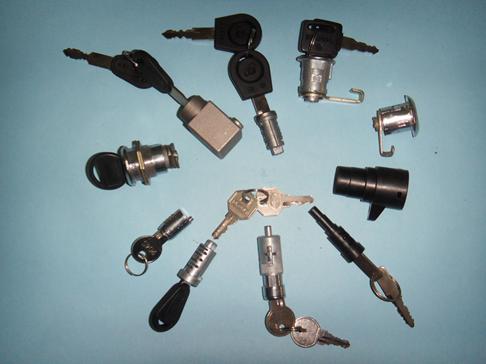
China is currently the world's largest hardware producer, yet it still lacks a significant number of high-precision and high-efficiency products. Many products remain at a low level, with limited value addition, and brand marketing efforts are lagging behind. Luo Baihui, the Chief Brand Officer of Jinmo Machinery, emphasized that to enhance competitiveness, hardware lock manufacturers must broaden their sales channels and focus on developing premium products. This shift is essential for staying ahead in an increasingly competitive market.
The current lock industry is characterized by low barriers to entry, which has led to weak patent protection awareness. Even if a company holds advanced patented technology, similar products often flood the market quickly. This lack of innovation and legal protection has caused confusion and frequent cases of infringement within the hardware lock sector. Additionally, the market is saturated with brands, but few have strong recognition. As a result, the industry remains a mix of quality and subpar offerings, making it difficult for consumers to distinguish between them.
Hardware locks and doors are both downstream sectors of the real estate industry. However, from a supply and demand perspective, hardware lock companies are typically subordinate to door manufacturers. Over the past decade, as door companies have grown stronger and evolved their distribution strategies, the demand for hardware locks has also shifted subtly. Traditional hardware locks are no longer sufficient to meet the evolving needs of door companies. Therefore, hardware lock manufacturers should not rely on outdated market demands but instead stay updated with current trends, understand the requirements of door companies, and adapt accordingly. Only through this proactive approach can they seize new opportunities, boost sales, and increase their market share. Collaboration with door companies is therefore crucial.
Many lock companies still lag behind in brand awareness and channel development, with underdeveloped marketing teams. To address this, lock manufacturers should restructure their existing sales models, invest more in regional marketing teams, explore new distribution channels, and prioritize brand promotion. This will help achieve balanced growth across the national market and build a stronger presence in different regions.
Currently, most lock companies focus primarily on large first- and second-tier door enterprises while overlooking smaller, developing ones. This short-sighted approach limits long-term growth and market potential. A recent survey of small and medium-sized door companies in Northeast China revealed that due to low monthly sales, their demand for locks is minimal. When these companies approached lock manufacturers, many were dismissed due to perceived low demand and high mold costs. However, with the rapid growth of the real estate sector and rising living standards, there’s been a shift in consumer preferences. People now prefer one-stop solutions for home renovations, saving time and avoiding the hassle of multiple vendors.
In recent years, private enterprises have emerged as key players in the hardware lock industry. The transfer of European and American markets presents a significant opportunity for Chinese hardware lock manufacturers to expand their global reach. By tapping into international markets, they can diversify their sales channels and reduce dependency on domestic fluctuations. This strategic move could be the key to future success and sustainable growth.
Ultra-thin magnetic attraction lamp
FOSHAN CITY KURUI LIGHTING CO.,LTD , https://www.kuruilighting.com
